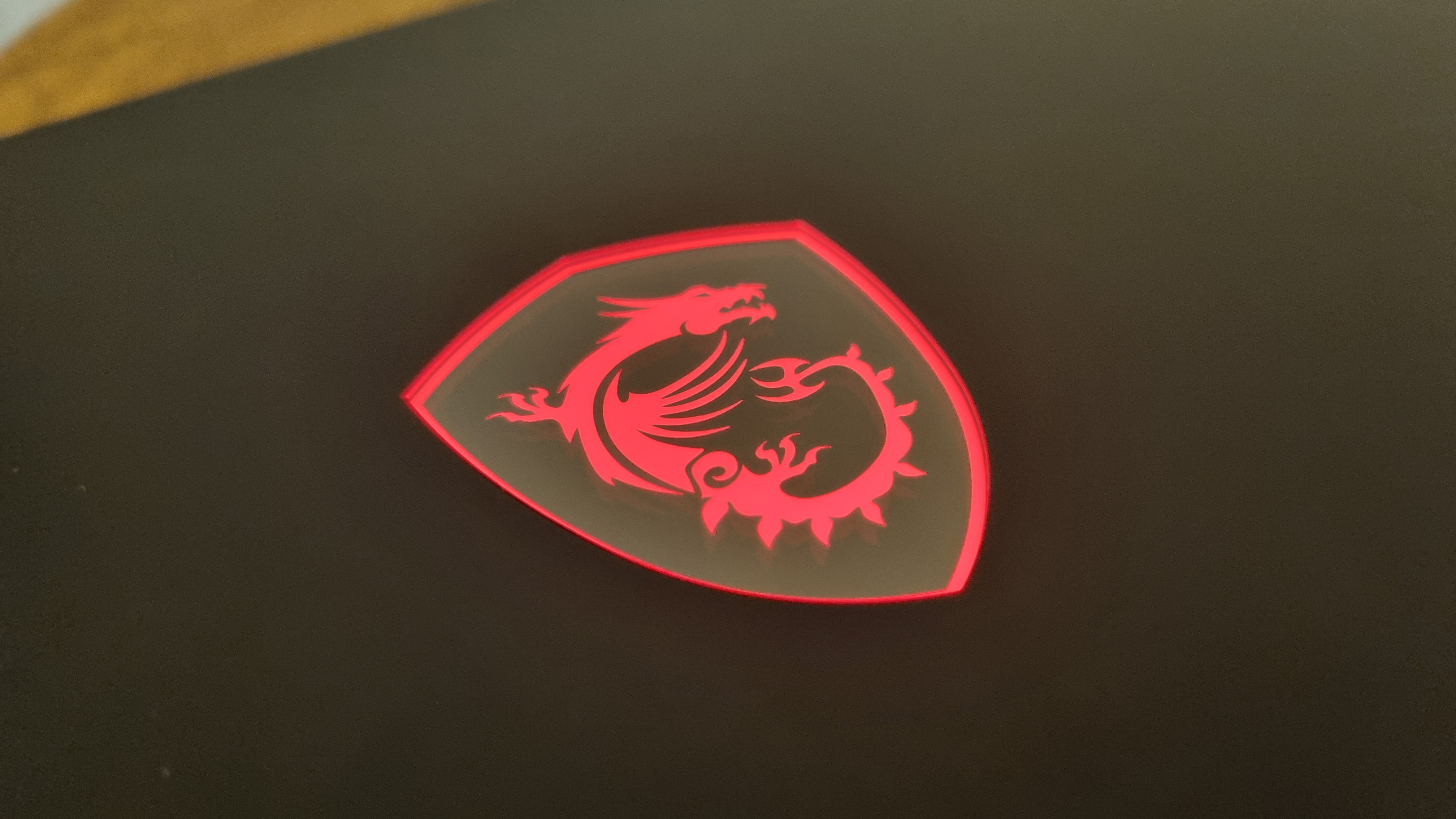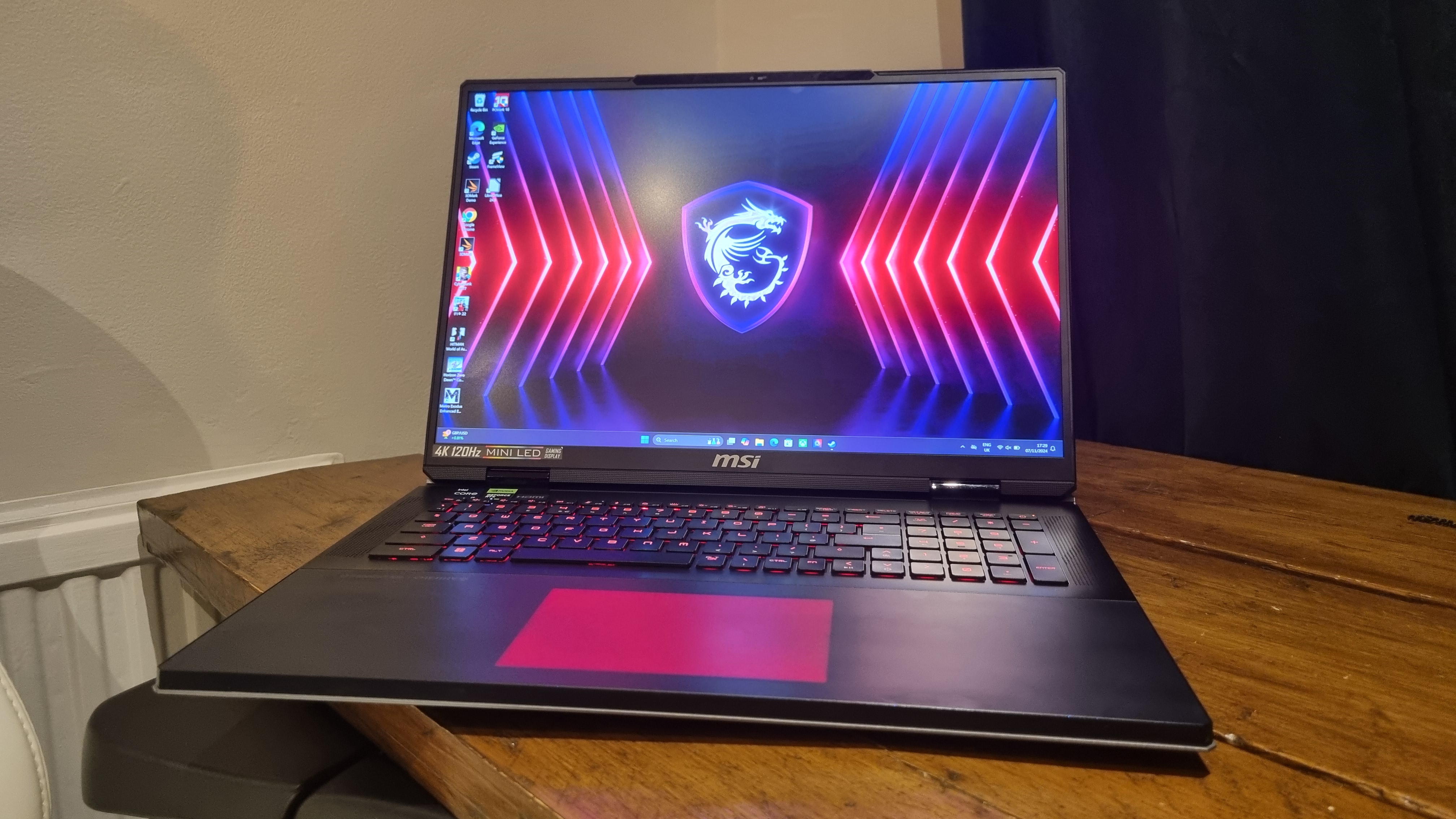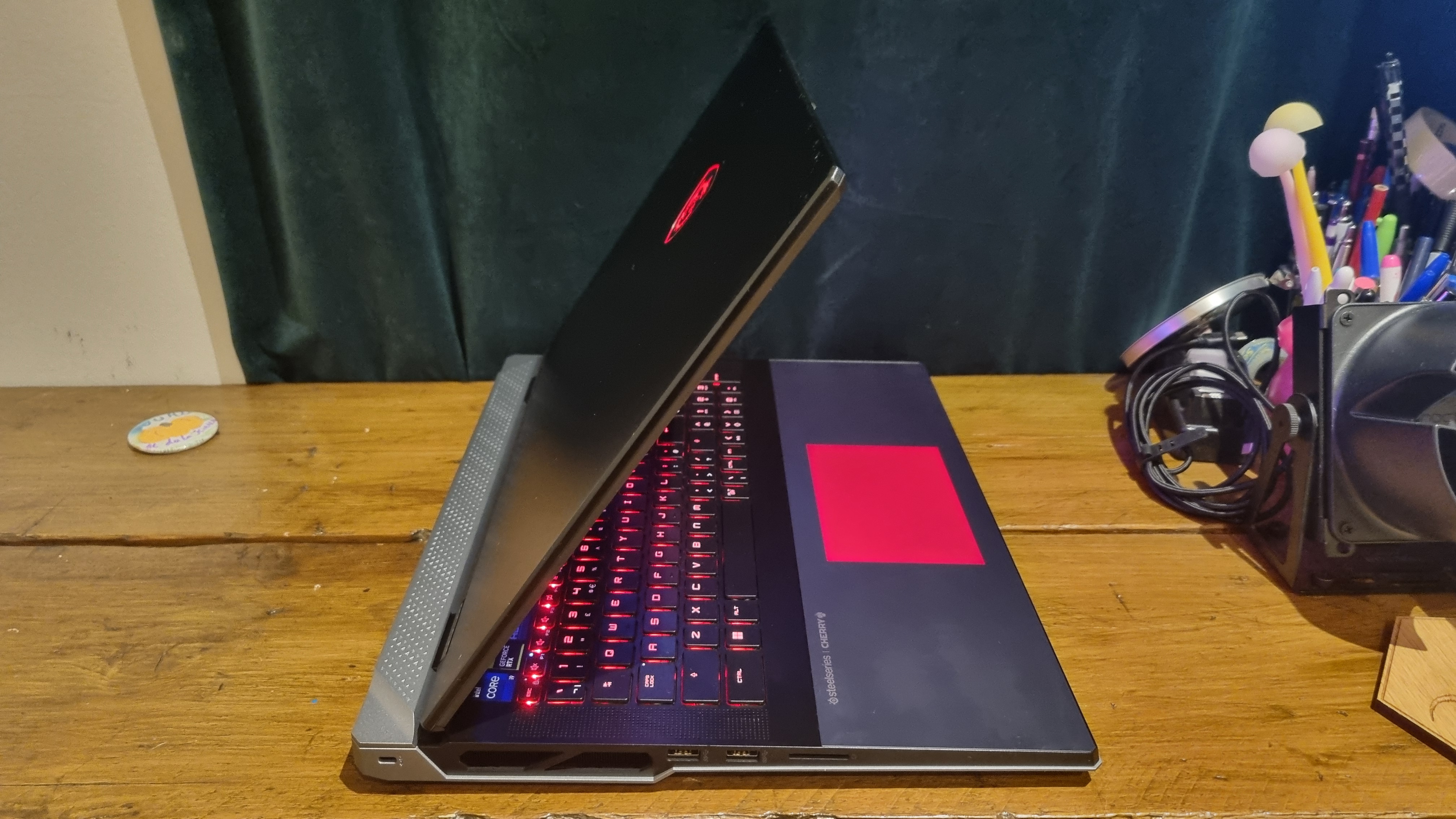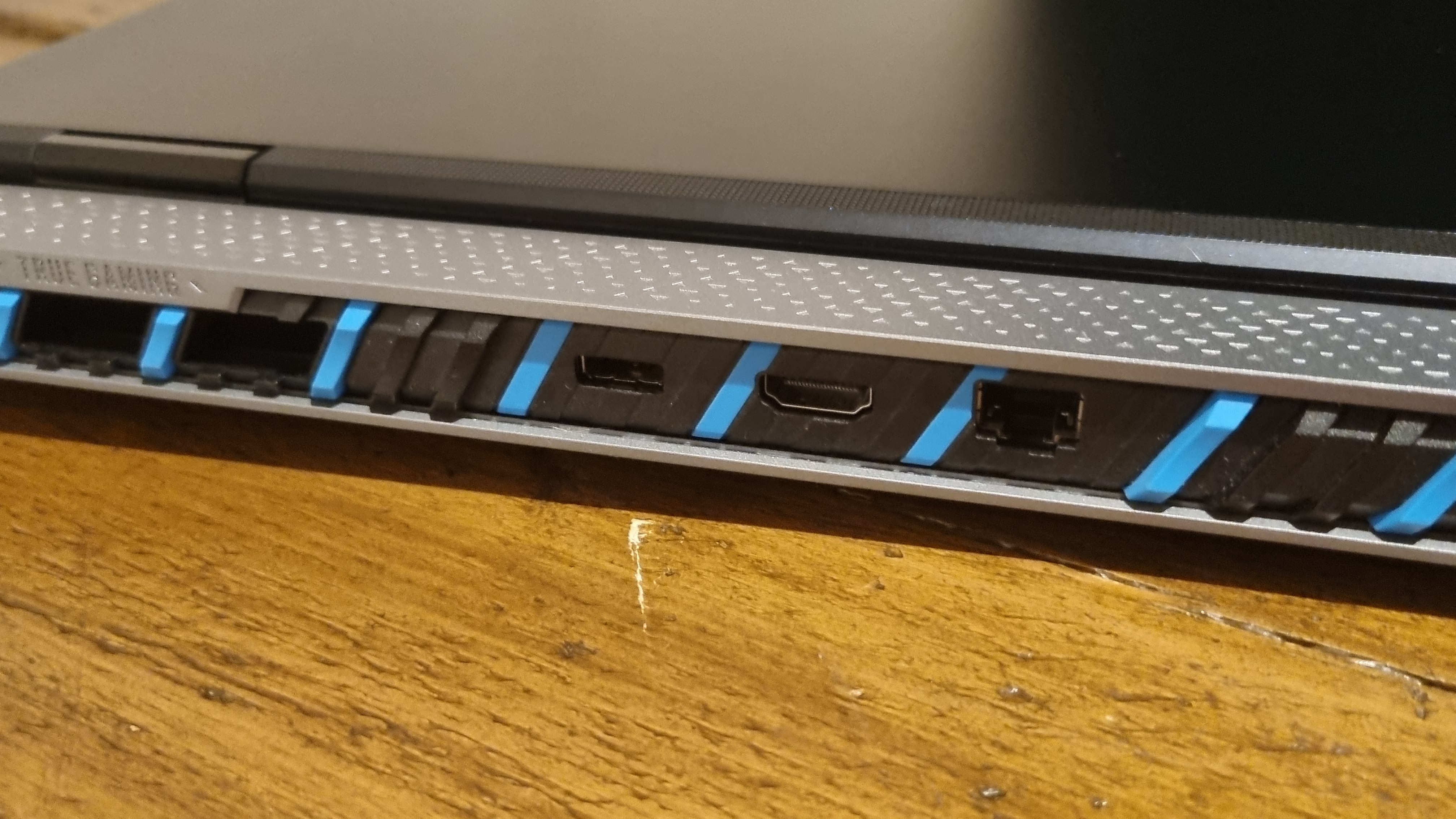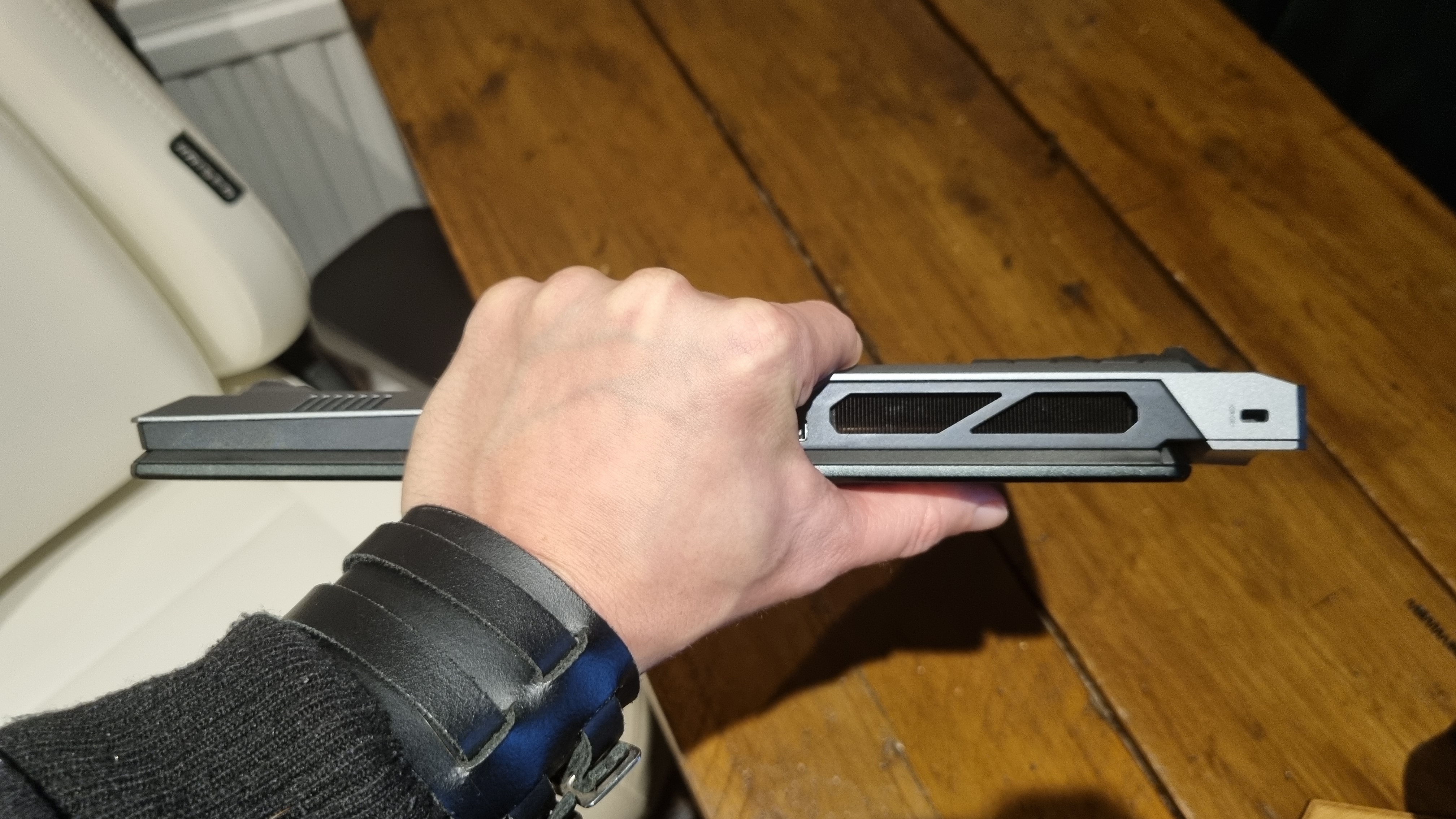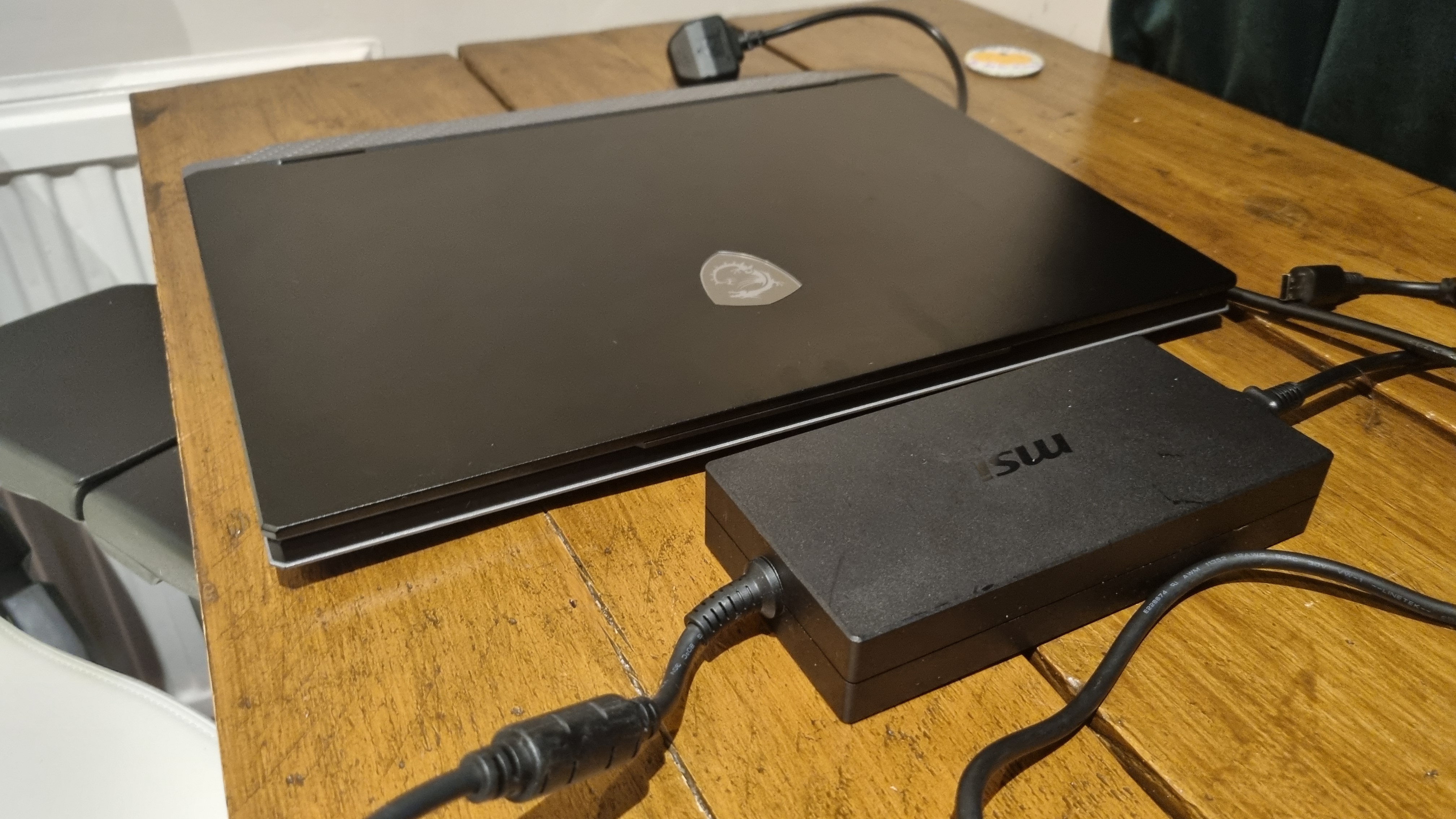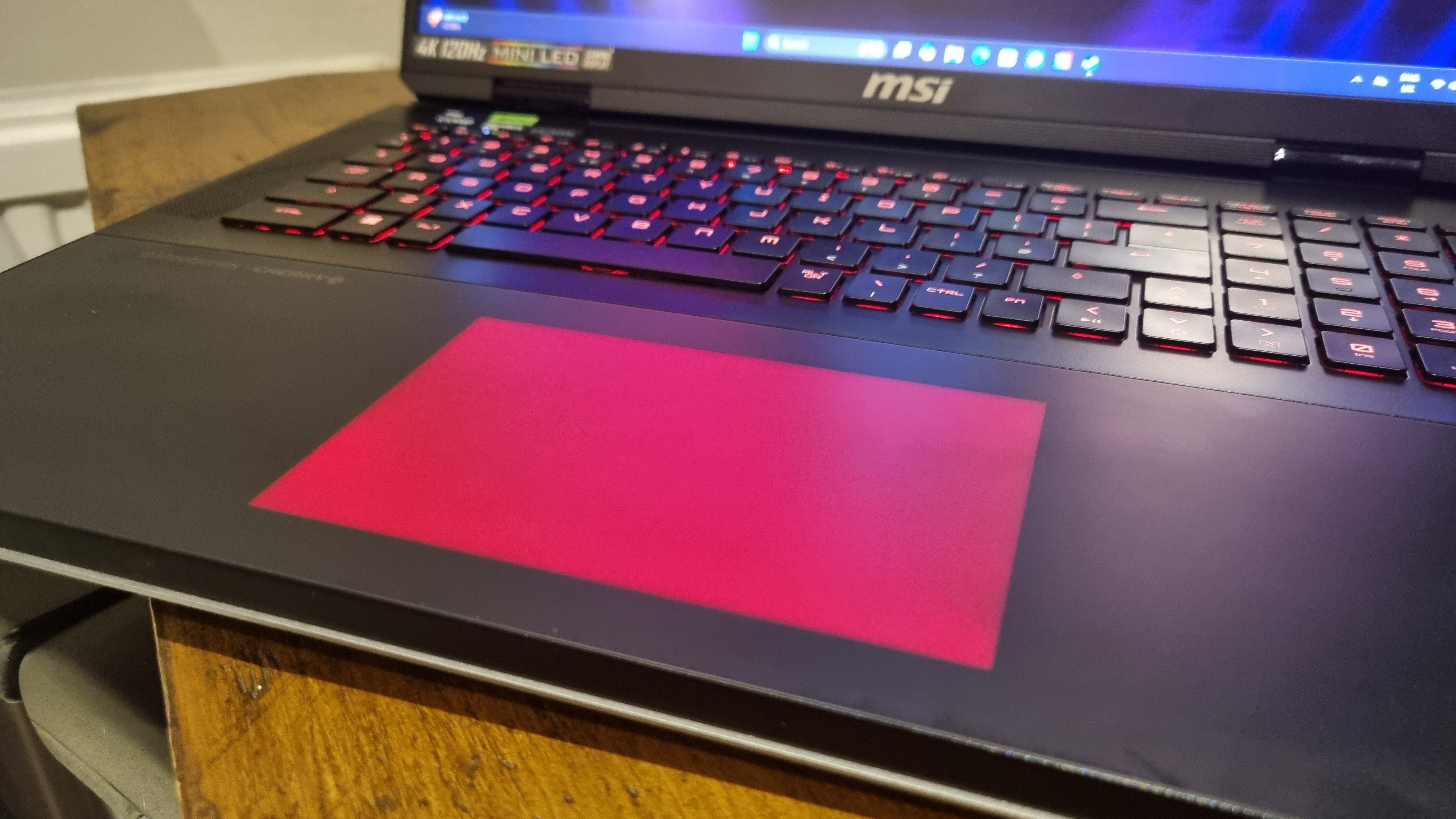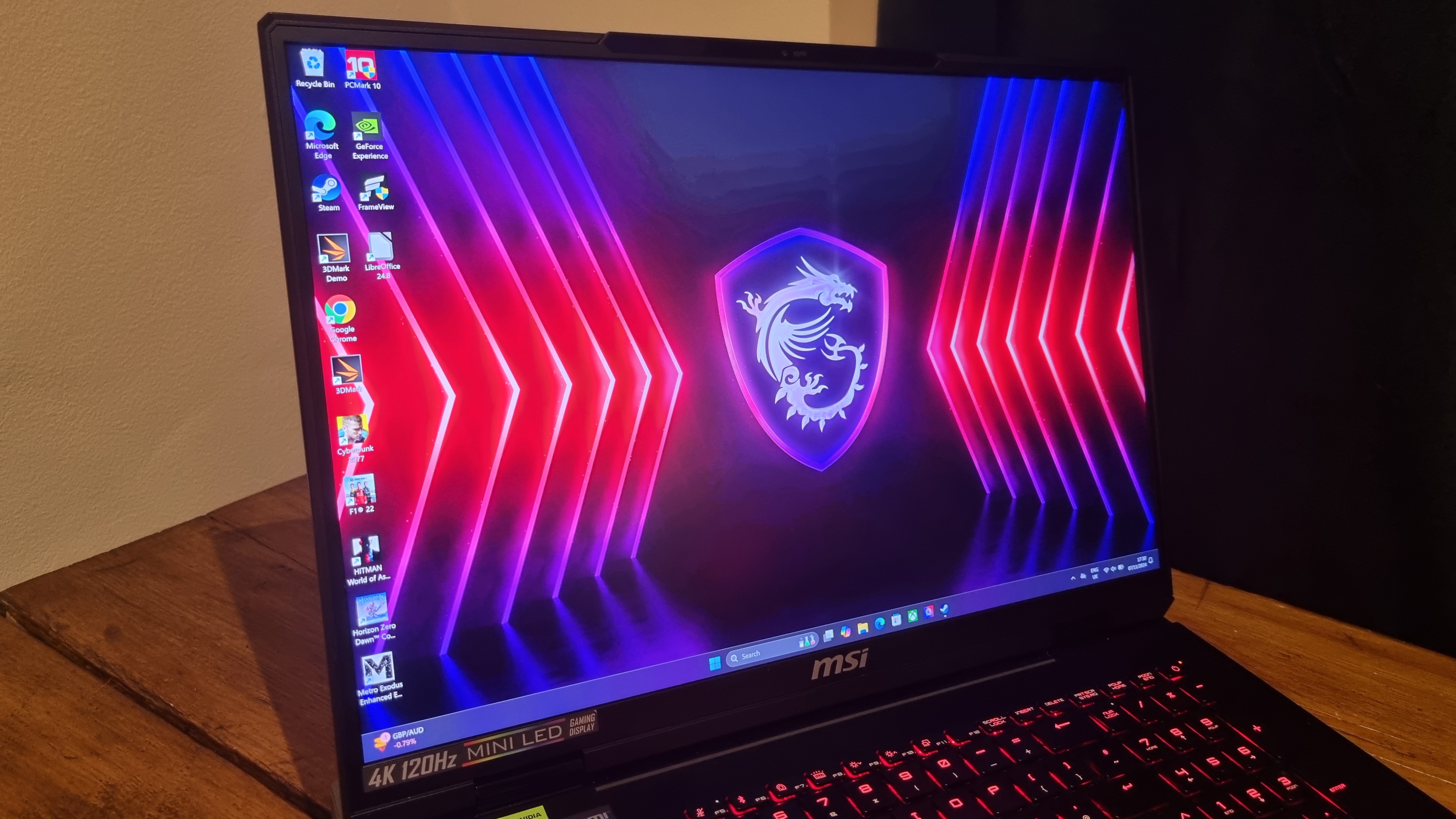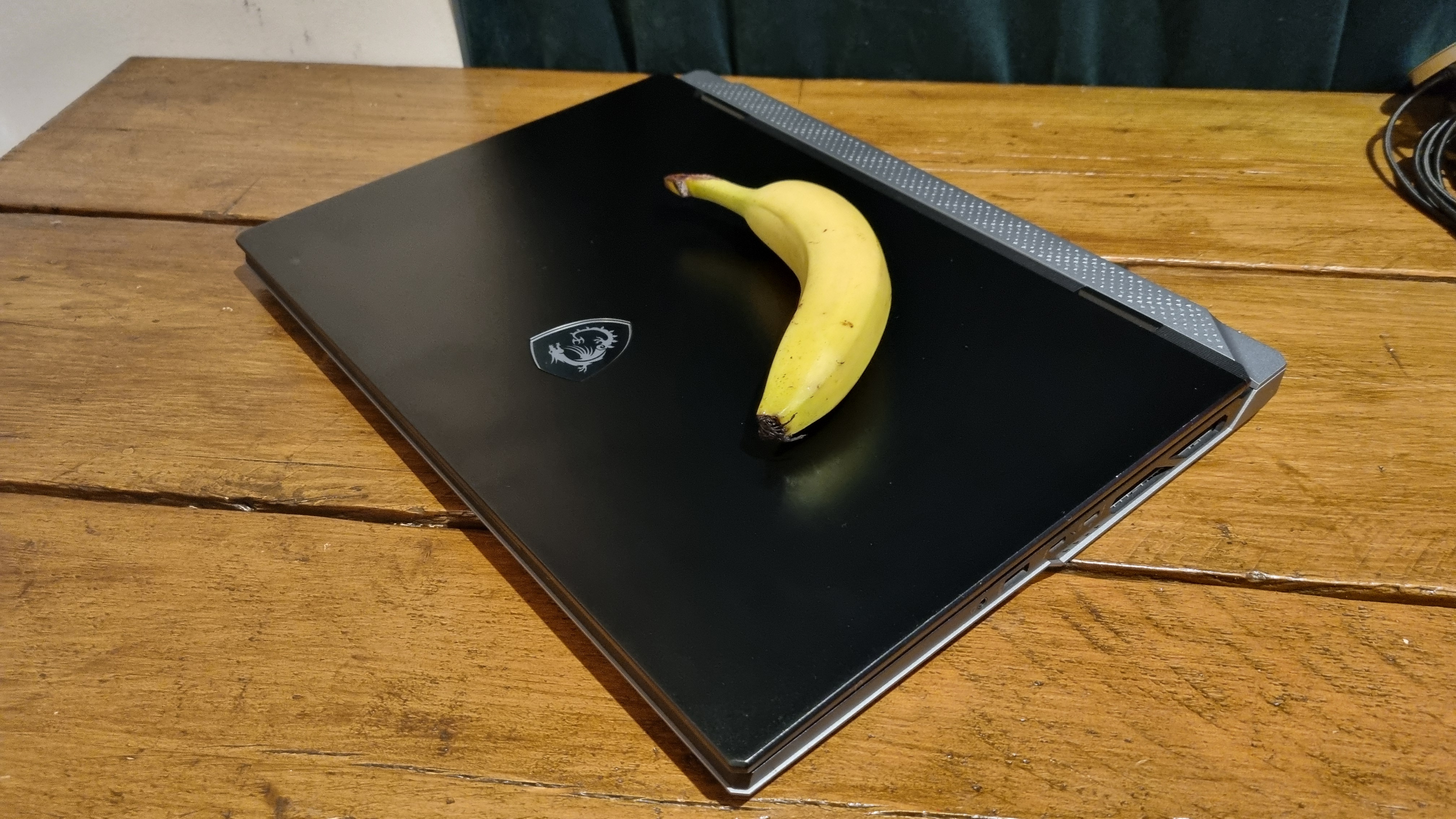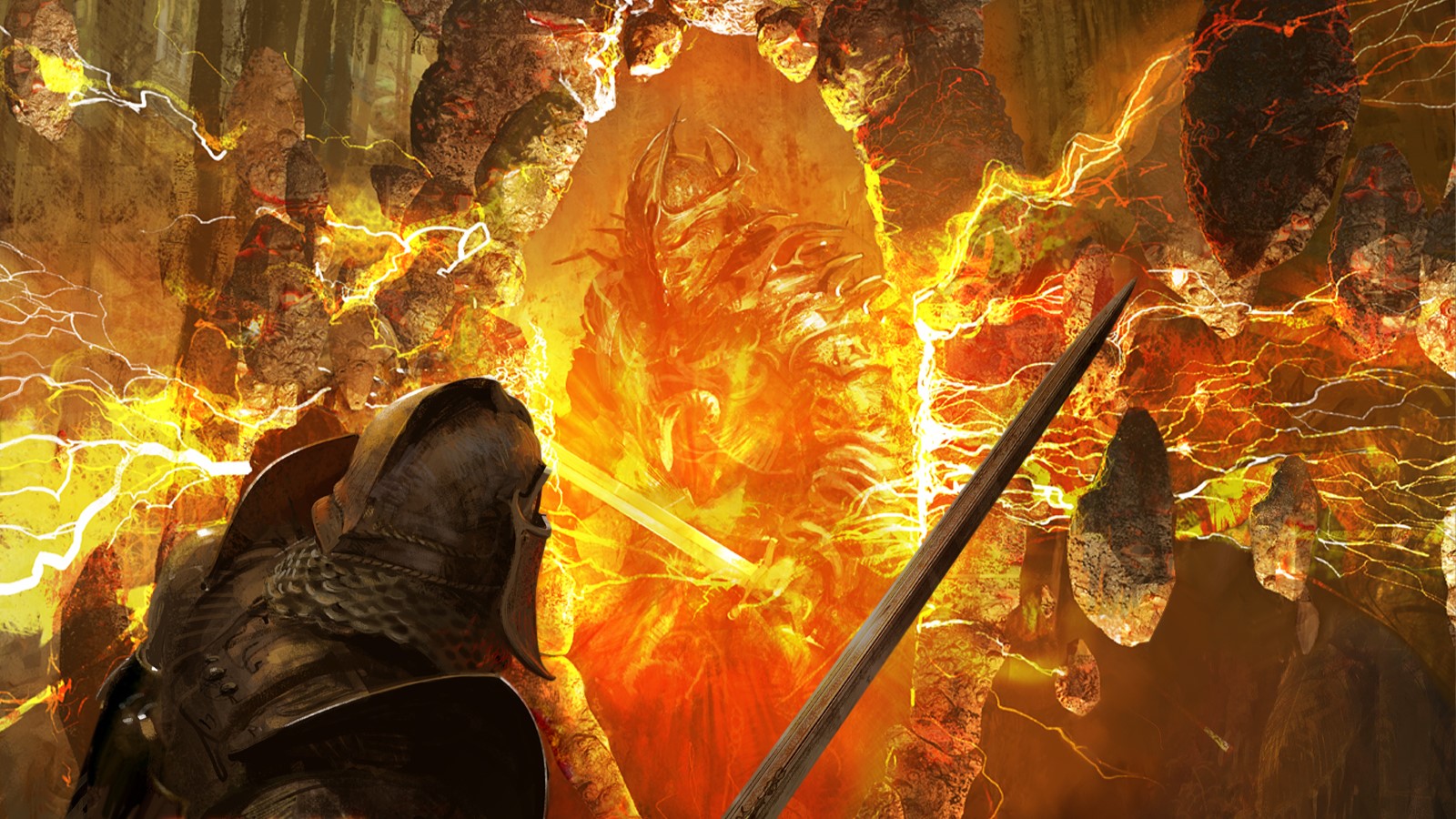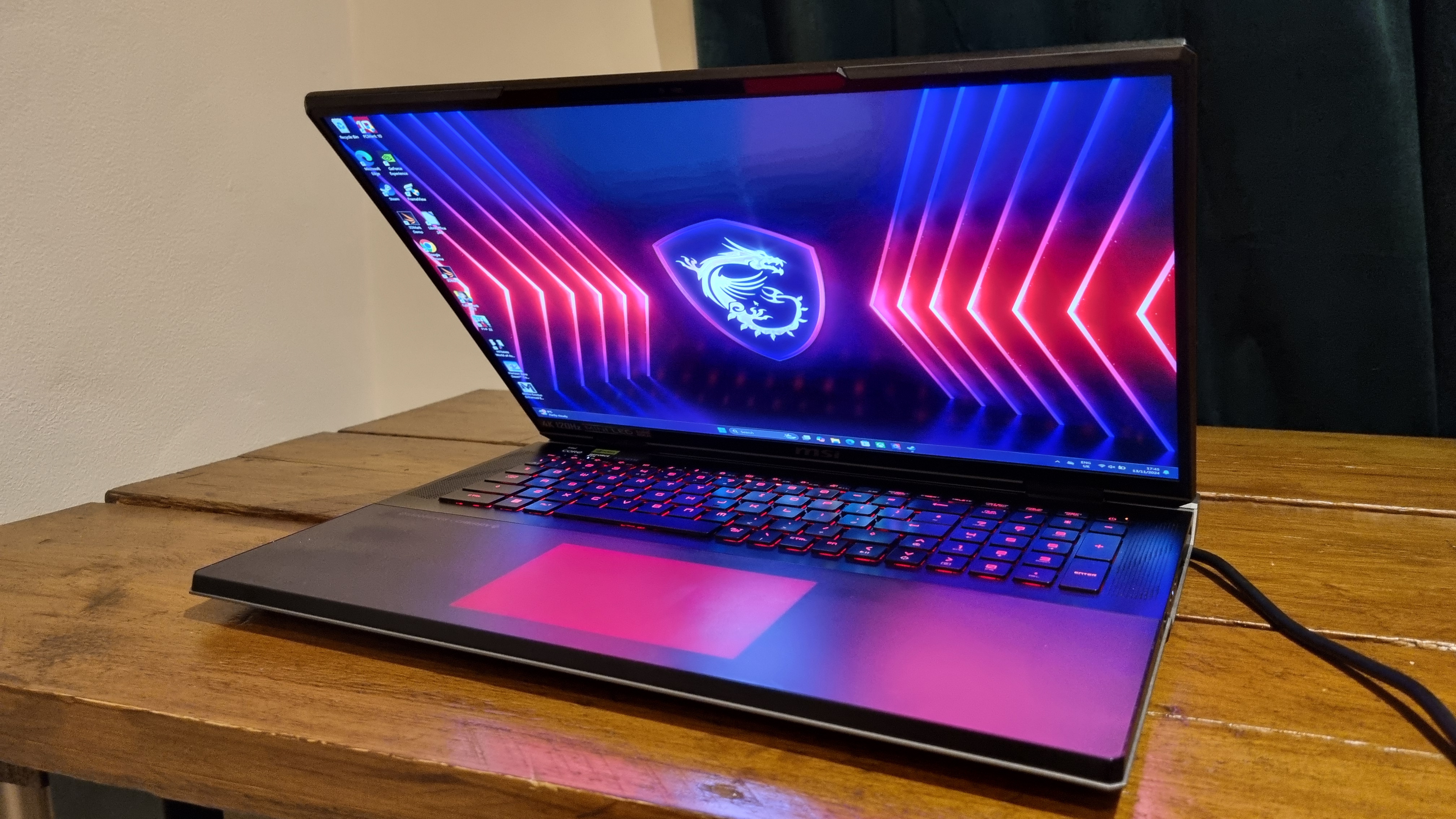
Intel Core i9 14900HX | RTX 4090 (175 W) | 128 GB DDR5 | 6 TB SSD (total) | $4,800 | £4,800
What is the purpose of a gaming laptop? A simple question, and one that’ll have different answers depending on who you ask. Most, myself included, will argue that a gaming laptop is for those who desire the power of a gaming PC in a chassis that you can take on the move.
That’s not all gaming laptops, however. Some fall into the “desktop replacement” category, and these are built to serve a different purpose. For these mighty machines, the idea is that you could move your PC around with you, but most of the time it’ll be chained to a desk, and as such the designers prioritise high-powered components, big screens, and little else.
They’re a bit of a dying breed, as these days it’s perfectly possible to have a supremely powerful laptop that’s still capable of being shoved in your bag and taken on the train, perhaps with a little bit of back strain as a result.
No-one seems to have told MSI. Because, in the year of our lord 2024, it’s still pumping out new versions of its Titan line. We reviewed one of the previous models, the MSI Titan GT77 HX, and gave it a score of 53%—thanks to its incredibly loud fans, ugly chassis, and ludicrous price, among other things. Now, the MSI Titan 18 HX A14V is here. So, have things improved?
CPU: Intel Core i9 14900HX
GPU: Nvidia GeForce RTX 4090
Graphics power: 175 W
Memory: 128 GB DDR5-5600
Storage: 6 TB across 3 x 2 TB Gen4 SSDs
Resolution: 3840 x 2400
Refresh Rate: 120 Hz
Network: Intel Killer BE Wi-Fi 7
OS: Windows 11
Dimensions: 404 x 307.5 x 24-32.05 mm
Price: $4,800 | £4,800
Price wise? Not really. The GT77 HX could be found for $5,300, and this new model retails for the same, although at the time of writing it is reduced down to a much more reasonable $4,800/£4,800—which is surely a bargain if you ask me.
Just kidding, that’s still a ridiculous amount to pay for a gaming laptop. Still, you’re getting quite literally the most highly-specced laptop money can buy right now when it comes to internal components, and that seems to be the whole reason for this machine’s existence.
So, for the CPU, it’s the 24-core Intel Core i9 14900HX, paired with a truly monstrous 128 GB of DDR5-5600. Yep, I did a double-take, too. Who needs 128 GB of RAM in a gaming laptop? Almost nobody, but again, need is not the point. It’s here, and you’re paying for it.
It’ll therefore come as no surprise that the GPU is the 175 W version of the mobile RTX 4090, a model we’ve continually criticised for being virtually pointless in laptop configurations thanks to the exceptional amounts of heat it produces. That means you’re usually paying for performance you can’t actually use, thanks to its tendency to overwhelm even the largest of mobile cooling solutions.
On first glances at the sizable chassis here, however, you’d be forgiven for thinking that the Titan 18 HX had at least half a chance. It’s covered in truly gigantic vents big enough to wedge a finger in, and the deck feels like a slab of granite thanks to the thickness created as a result. I say slab of granite, but I only wish it felt as resistant to damage.
The weight is here, but the build quality is decidedly not. Flipping the laptop over (with some considerable effort, given that it weighs nearly eight pounds) reveals some incredibly hollow-sounding plastic protrusions on the underside, presumably to keep all those scalding hot components away from your legs.
They work, as it happens (and we’ll get on to heat later, believe me), but the plastic feels tinny and worryingly breakable.
First impressions disappoint elsewhere, too. The base upon which you rest your wrists is decent enough (although incredibly fingerprint prone), but it contains a totally flush RGB trackpad, no edge whatsoever, and the lighting effect is horrible. It looks washed out, and feels worse.
The click underneath has the same sort of tactile feedback and noise as pushing down on plastic food packaging, with a tacky ping that makes you feel like you’re constantly breaking it, rather than clicking down on something substantial.
I could go on, and in fact I will. The whole theme here appears to be red, black and grey—apart from some venting inserts on the rear, which are baby blue. They look like they were grabbed from an entirely different machine, and had me staring at them with a look of genuine confusion for some time.
Most egregious of all when it comes to fit and finish, however, is the lid. Contained within is a 2400p 120 Hz Mini-LED screen, a fragile and rather good-looking panel that you’ll want to keep safe from harm’s way. No such worries when it comes to the outside of the lid—it feels sufficiently protective. But in an open position, it… tell you what, there’s no point explaining this, let me just show you instead.
I’m sorry MSI, I really am, but that’s completely unacceptable even in a budget laptop, never mind one at this price. I took this machine into the office with me once (just to prove that it could be done) and I spent the entire time fretting that the clumsily implemented, worryingly creaky chassis was going to result in a dead panel once I’d arrived.
It survived, for the record, although my back barely made it. As a desktop replacement model, you could argue that this was an unfair test, but I wanted to see what it would be like to buy one of these laptops and use it as a laptop—and the answer is, you simply wouldn’t.
I know what you’re thinking at this point—sure the chassis might be rubbish, and the design’s a complete brick, but this is a machine designed to dominate the benchmarks. So here’s the part where the Titan really comes into its own.
Sort of. Sometimes. In certain benchmarks. Perhaps. Looking at the 1080p real-world gaming figures, the Titan 18 HX manages to pull ahead of its elder sibling quite significantly in most cases, although there are outlier results. In Cyberpunk 2077 it’s a frame slower, and I had some issues with the Metro Exodus Enhanced Edition benchmark tool.
Lows were, well, very low, and the frame timing was all over the place. The Titan performed smoothly everywhere else, so I’ll write that off as an issue I couldn’t track down despite multiple driver and game reinstalls.
At 1440p, the Titan 18 HX lags behind the Titan GT77 HX in Cyberpunk by a single frame once more. Other than that, however, it’s much the same story. Speedier than the competition on average, sometimes significantly—and in F1 22’s case, by a considerable margin.
In both the 1080p and 1440p tests, the Titan boosted itself to hypercar-levels of performance in this particular game, throwing all our previous RTX 4090-wielding laptops into the barriers.
At 4K, however, the wheels well and truly come off. While the Titan 18 HX keeps its F1 22 lead by a solitary average frame, in every other game it finds itself outmatched by the competition.
So what’s going on here then? Well, at 4K you really are leaning on that mobile RTX 4090 quite heavily, and those of you that have read our RTX 4090 laptop reviews before will know where I’m going next.
At “extreme” performance settings (what else would you keep a laptop like this set to while plugged in?), the fans ramp up to hilariously loud levels—but they still can’t stop that GPU from throttling back to save itself from melting a hole through the middle of the Earth.
It’s the same story in the rendering benchmarks. At best, it slightly edges ahead of its rivals in the odd test, at worst, it lags behind the older model. These components simply do not wish to run flat out in a laptop chassis, even one this large—and that Core i9 CPU kicks the cooling system into high-gear panic in no time at all.
Speaking of fan noise, I know this is something that’s complained about with every ultra-high spec laptop under heavy load, but the Titan 18 HX really is something to behold.
On my office adventure, I had to stop myself from benching this laptop at my desk lest it annoyed the entire floor with its jet-engine-like roar. I know this sounds like overstatement, but it really is loud to the point of embarrassing. I’ve included another video clip here, because you really need to hear it for yourself to get the point across.
I’d suggest turning the sound up for the full effect.
Battery life is, well, the sort of battery life you’d expect from a desktop replacement. I have to say that under real world usage, you can definitely get a few hours out of it, but give it the chance to spin up those fans (and it’ll take any excuse it can get) and battery life plummets considerably.
There are yet more day-to-day teething issues that I can’t let go, and seeing as I’m on a roll here I’d better list them. The keyboard, for one. This is a SteelSeries unit, complete with the SteelSeries text printed proudly on the top deck. I quite like SteelSeries keyboards, but the only thing reminiscent of a good SteelSeries keeb here is the font.
It crunches, pings, and pops, with the sort of resistance that makes me physically screw my face up as I type. It’s mostly mechanical at least, by which I mean there’s proper mechanical travel on most of the keys—apart from the odd few, like the Escape, the left Ctrl, and the arrow keys, which feel like scissor units.
To keep costs down, I would imagine. Got to save those pennies somewhere, ey?
Hear that springy pinging? Yep, once you’ve noticed it, there’s no un-noticing it. Another personal record broken here, as I’ve never heard a laptop keeb sound quite as loud as this one.
The speakers are dreadful, too. I put the Titan side by side with my partner’s default HP work machine, and somehow the cheap and cheerful model managed to exceed the volume of the big bruiser by a country mile, and sounded better balanced, to boot.
They’re hollow units, and that lack of volume is going to be a real problem when those fans kick into high gear. In short, if you’re buying one of these, you’re going to need a headset. A properly loud one, ideally with noise cancelling.
This is all sounding very negative, isn’t it? I’d better mention that screen once more for balance, which really is a lovely panel. It’s just a shame it’s only 120 Hz, which seems like an odd omission given everything else here is specced up to the guns. The previous Titan featured a 17-inch 144 Hz Mini-LED display, so I can only imagine that 18-inch high-refresh panels are difficult to get hold of.
Still, it’s a good-looking 4K display. It’s just a shame that, err, 4K performance is where the Titan falls down compared to similarly-specced machines.
So then, what to say about this behemoth of a gaming laptop? In certain benchmarks it’s the fastest we’ve ever tested, and for that it deserves a certain degree of acclaim. However, almost every other desirable facet of a modern laptop has been sacrificed as a result.
It’s not slim nor sleek. It’s not a premium feeling object. The battery life is rubbish, the keyboard is crunchy, and the trackpad looks awful—with a click that feels worse.
It’s loud, cantankerous, unwieldy, and at 4K it still gets beaten out by the Lenovo Legion 9i. That’s a laptop with phenomenal build quality, a sleek form factor, a superb keyboard, and so many other desirable aspects it’s simply no contest as to which you’d rather have. Lenovo has released a refreshed version since our review that should do you rather nicely, and you can often pick one up for well under $4,000.
✅ You absolutely must have the top components: If you really, really need stonking amounts of RAM, a super-powerful GPU and all the trimmings, there aren’t many options. The Titan 18 HX is certainly one of those.
❌ You have any concerns about money at all: For much less, you can get better. Much better.
❌ You value build quality and nice materials: While the Titan has a weight that suggests quality, the rest of the plastics suggest something far cheaper.
❌ You like being able to hear yourself think: It’s the loudest gaming laptop I’ve ever heard under load, and that’s quite the achievement.
That’s still a silly amount of money for any laptop, but it’s still massively cheaper than the MSI. The price of a nice mini-break for two—saved.
Should an 18-inch lappy be what you desire for desktop replacement duties, why not take a look at the Asus ROG Strix Scar 18? It’s also horrendously loud, subtle as a brick, and angular to a fault. But having personally tested and reviewed both, I’d take the Asus all day long. It’s an old-fashioned feeling machine, but at least it has build quality to match—and can often be found cheaper, too.
I just can’t get my head around why MSI keeps making the Titan. Gaming and creator laptops have come such a long way in the past few years, and so much of that is down to taking powerful components and balancing them with the day-to-day niceties that make a premium object such a wonderful thing to behold. A thing of desirability, worthy of serious levels of cash for serious levels of luxury.
Fast, the Titan 18 HX A14V may be. But luxurious? Not a bit of it. If I was being generous, and at this point I feel I have to be for balance’s sake, I like that it no longer has a large rear lip like the previous model. That feels like an improvement, and I’ve reflected it in the score.
But otherwise? It might be a performance monster compared to many, but charging this amount of money for a laptop with this little refinement is asking for trouble. I should be desperate to hang on to a machine with this kind of firepower inside it, but honestly? MSI, you can have it back.

